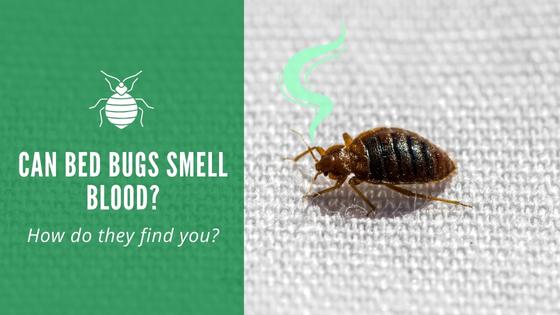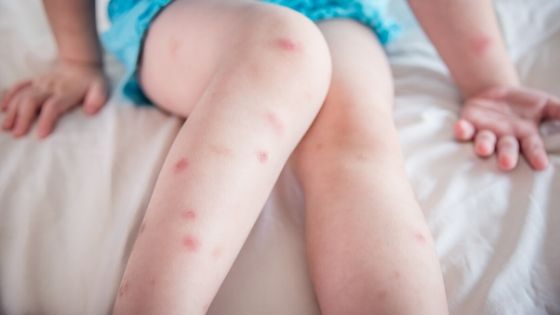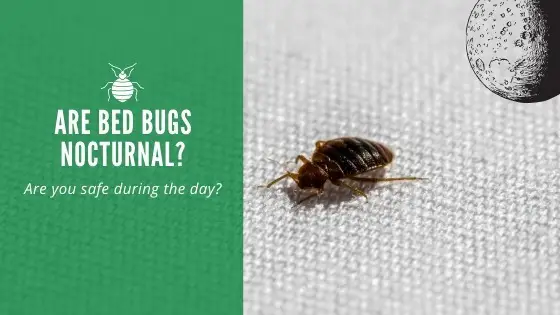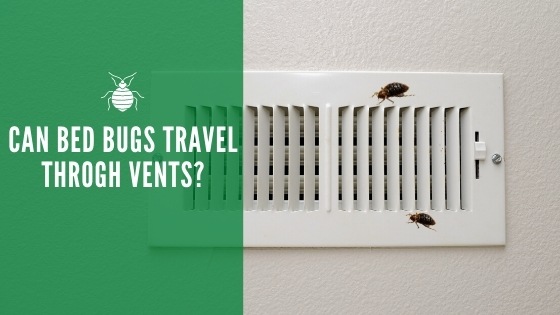Can Bed Bugs Smell Blood?

Bed bugs generate a lot of fear. Not only are bed bugs hard to get rid of, but they also attack humans when they are most vulnerable. Fleas and ticks also feed on human blood, yet there is something extra terrifying about being fed on while you sleep. While there is still much we don’t know about these cryptic insects, science has revealed a few things about their feeding patterns once they invade your home.
Can Bed Bugs Smell Blood?
The good news is that bed bugs don’t seem to be able to smell blood. If you have an open wound, you don’t have to worry about attracting bed bugs to your home. Bed bugs can cause you to leak blood onto your bedding, but this won’t bring more running to where you sleep.
How Do Bed Bugs Find Humans?
Since they can’t smell blood, bed bugs have other ways of figuring out where to find a meal. Bed bugs can detect the carbon dioxide you exhale as you sleep and your body heat.
A bed bug’s heat and CO2 detection abilities can only reach so far, meaning they need to be close to you to realize that they can feed. Usually, a bed bug needs to be within a range of about three feet to figure out that there’s a host nearby.
Although no one is sure how they decide to get that close, it is known that bed bugs become very active around midnight to early morning. During this time, they can easily encounter a new host as they wander through your home or a hotel.
Once they find a host, bed bugs tend to stay close by. You can find bed bugs lurking around the mattress seams, inside cracks of a headboard, or even under the carpet and around the baseboards of the area where you sleep.
How Do Bed Bugs Feed On Hosts?
Even once they find a host, bed bugs often have to use their special proboscis to probe your skin several times to find a fresh capillary to feed on. This is why you may find yourself with multiple bites in a row.
Once they find a good feeding spot, they release a special chemical that stops your blood from coagulating. Then, they’ll feed for five to 10 minutes until they feel full. After they’ve fed on your blood, they return to their hiding space to digest it to create energy for their next nocturnal hunt.
The bed bug’s bite is initially painless, so it won’t likely wake you up as you feed. Instead, you might notice itchy welts later that morning, which is a reaction to the bed bug’s bite.
What Smells Keep Bed Bugs Away?
A bed bug might not be searching for the scent of blood, but they detect certain smells. Using scents that aren’t attractive to bed bugs could provide an additional layer of protection against an infestation when included in a comprehensive pest prevention plan.

Rubbing Alcohol
Rubbing alcohol can harm bed bugs by drying out their exoskeletons, which they seem to naturally understand. Using rubbing alcohol to kill bed bugs is virtually impossible since they tend to hide in hard-to-reach spaces. But, leaving a few cotton balls soaked in rubbing alcohol might help to send the bugs scrambling to find a new home.
Tea Tree Oil
This essential oil works a lot like rubbing alcohol by being potentially toxic to bed bugs. Spraying tea tree oil around a room is a great preventative measure that might help deter other insects from invading your space.
Diatomaceous Earth
This powder, made from fossilized algae, has a pungent smell that repels many insects. Diatomaceous earth can destroy tough exoskeletons and dehydrate bed bugs and cockroaches and ants.
Bed Bug Pheromones
Recent studies have shown that juvenile nymphs release a type of alarm pheromone that deters adult males from trying to mate. Although more research is still being done, it is believed that releasing similar scents can help to disrupt bed bug mating abilities and possibly deter males from staying in a specific location.
Those nocturnal blood-suckers might not be able to smell your blood, but they can detect a variety of scents along with your breath. Lemon, eucalyptus, blood orange, and lavender are additional scents that drive bed bugs away, and it won’t hurt to spray some around your room.
Keep in mind, however, that using scents works best as a preventative measure. You’ll still need to use professional bed bug control methods to eliminate a widespread infestation.



